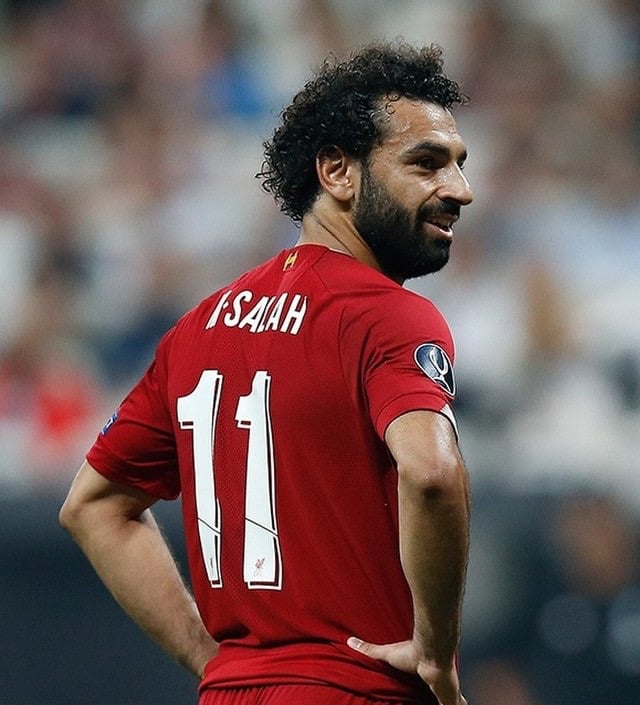Liverpool forward Mohamed Salah has publicly criticised UEFA for failing to reveal how Palestinian footballer Suleiman al-Obeid died in its social media tribute, demanding transparency from European football’s governing body.
The Egyptian star, arguably the most prominent Arab sportsman in the world, responded to UEFA’s brief tribute on X (formerly Twitter) by asking: “Can you tell us how he died, where, and why?” The pointed question quickly gained traction online, receiving over 840,000 likes within hours.
Al-Obeid, 41, known as the “Palestinian Pele” for his exceptional skills, was killed by an Israeli airstrike whilst waiting for humanitarian aid in the southern Gaza Strip on Wednesday, according to the Palestine Football Association. The former national team striker was among civilians seeking food when the attack occurred.
UEFA’s original post described al-Obeid as “a talent who gave hope to countless children, even in the darkest of times” but made no reference to the circumstances of his death, prompting widespread criticism beyond Salah’s intervention.
The Liverpool striker’s response marks a rare public statement on the Gaza conflict from one of football’s biggest stars. Salah, a devout Muslim who has previously advocated for humanitarian aid access to Gaza, broke what many observers characterised as a long silence on the ongoing war.
Palestinian writer Mosab Abu Toha joined the criticism, accusing UEFA of cowardice: “Unbelievable how coward you are not to name who killed him (Israel) and where/how they killed him (seeking food near GHF sites).
Al-Obeid’s death adds to a devastating toll on Palestinian football. According to the Palestine Football Association, 421 footballers have been killed since October 2023, including 103 children. A further 288 sports facilities have been damaged or destroyed across Gaza and the West Bank.
Born in Gaza City, al-Obeid scored over 100 goals during his illustrious career, representing clubs in both Gaza and the West Bank. He earned 24 caps for Palestine’s national team, scoring twice, including a memorable scissor-kick against Yemen in the 2010 West Asian Football Federation Championship.
The footballer leaves behind two sons and three daughters, adding a personal tragedy to the broader humanitarian crisis engulfing Gaza.
His death occurred against a backdrop of mounting civilian casualties at aid distribution sites. United Nations figures reveal that more than 1,000 Palestinians have been killed whilst attempting to access food since late May, with 766 deaths occurring near sites run by the Gaza Humanitarian Foundation, a US and Israeli-backed aid distribution system.
As of 21 July, we have recorded 1,054 people killed in Gaza while trying to get food,” UN human rights office spokesman Thameen Al-Kheetan confirmed, stating the victims had been “killed by the Israeli military.
The humanitarian situation in Gaza continues to deteriorate dramatically. The UN reports that famine thresholds have been reached across most of the territory, with acute malnutrition widespread in Gaza City. Over 154 people, including 89 children, have died from malnutrition since the war began, according to Gaza’s Health Ministry.
Salah’s intervention has reignited debate about UEFA’s stance on the conflict. The governing body has resisted calls to ban Israel from international football competitions, despite mounting pressure from human rights groups and football associations worldwide.
Some responding to Salah’s post questioned why it had taken the 33-year-old Egyptian so long to speak out on the war. However, the Liverpool forward had previously called for humanitarian aid to be allowed into Gaza “immediately” and urged world leaders to “prevent the further slaughter of innocent souls.
UEFA president Aleksander Čeferin later issued a separate statement acknowledging al-Obeid’s death, saying he showed that “joy, talent, and pride can blossom despite suffering” and that “his talent and dedication gave the children of Gaza and beyond hope in a brighter tomorrow. However, this statement also avoided mentioning how the footballer died.
Football analyst Karim Mikdadi expressed surprise at UEFA even acknowledging al-Obeid’s death, citing the organisation’s “complete silence” throughout the war. Suleiman al-Obeid is not the first Palestinian footballer to perish in this genocide, there’s been over 400, but he’s by far the most prominent as of now,” he said.
The controversy highlights the intersection of sport and politics in one of the world’s most intractable conflicts. As international bodies struggle to maintain neutrality, figures like Salah are increasingly using their platforms to demand accountability.
Al-Obeid’s tragic death whilst seeking food underscores the desperate humanitarian crisis facing Gaza’s 2.3 million residents. With aid access severely restricted and infrastructure destroyed, civilians face daily life-threatening challenges simply trying to secure basic necessities.
For Palestinian football, the loss represents another blow to a sporting community already devastated by the conflict. Al-Obeid’s legacy as one of Gaza’s greatest footballers now joins a growing list of athletes whose lives have been cut short by the ongoing war.
Follow for more updates on Britannia Daily
Image Credit (Shortened):
Mo Salah at the 2019 UEFA Super Cup – by Mehdi Bolourian, licensed under CC BY 4.0, via Wikimedia Commons.



